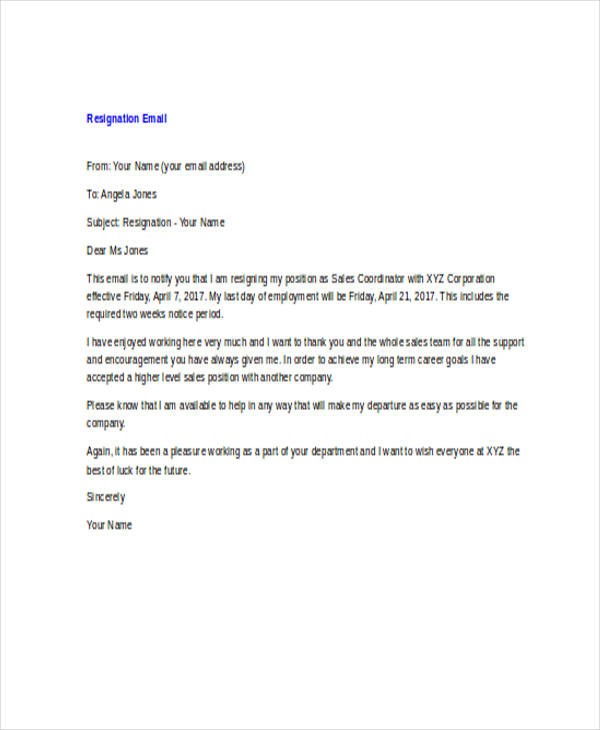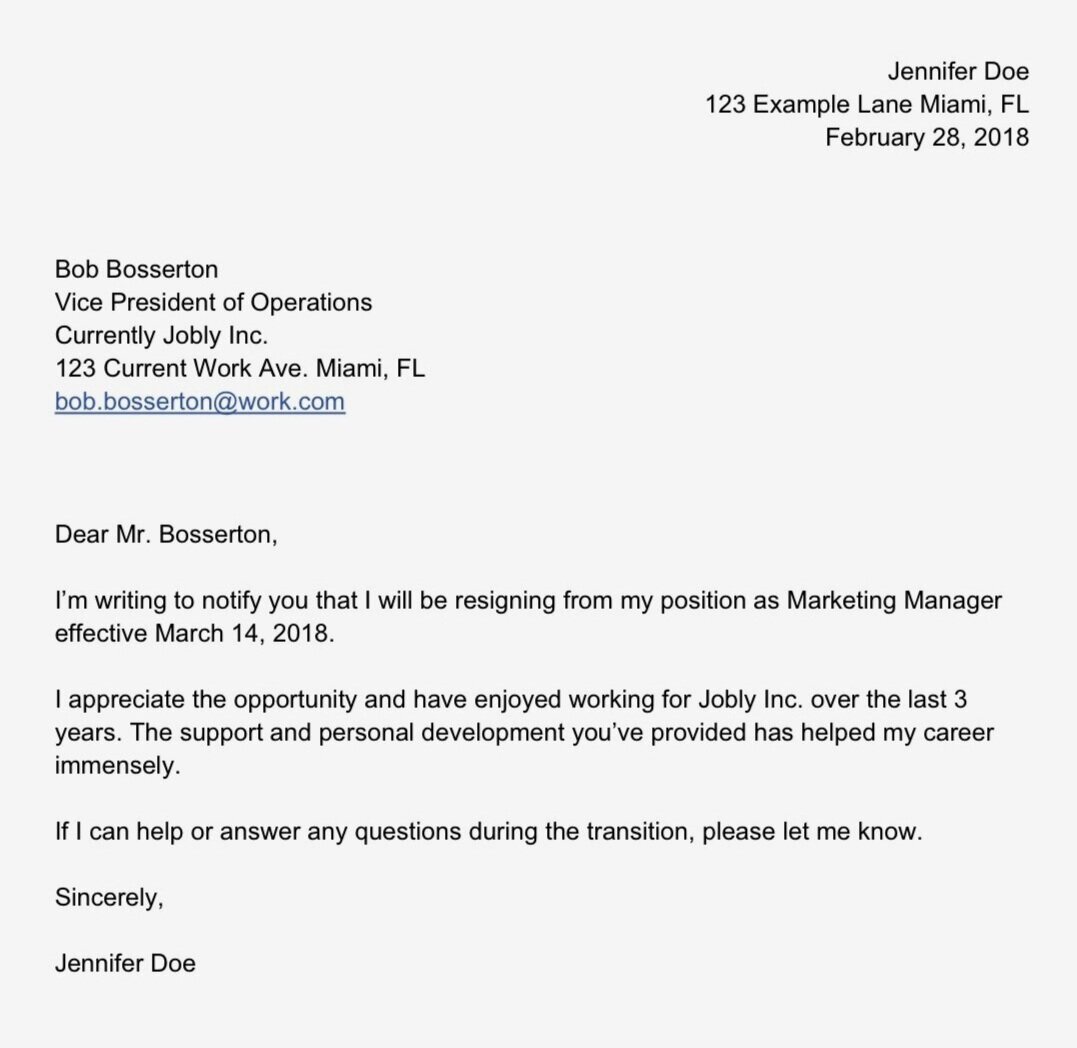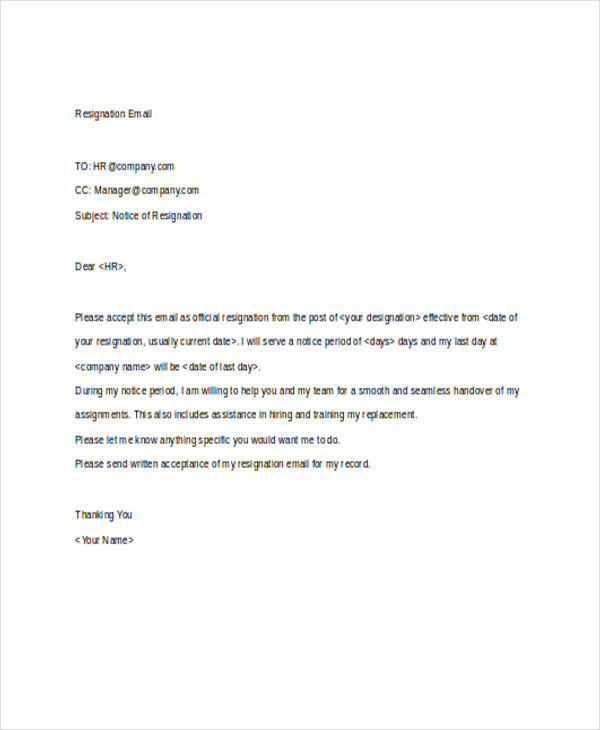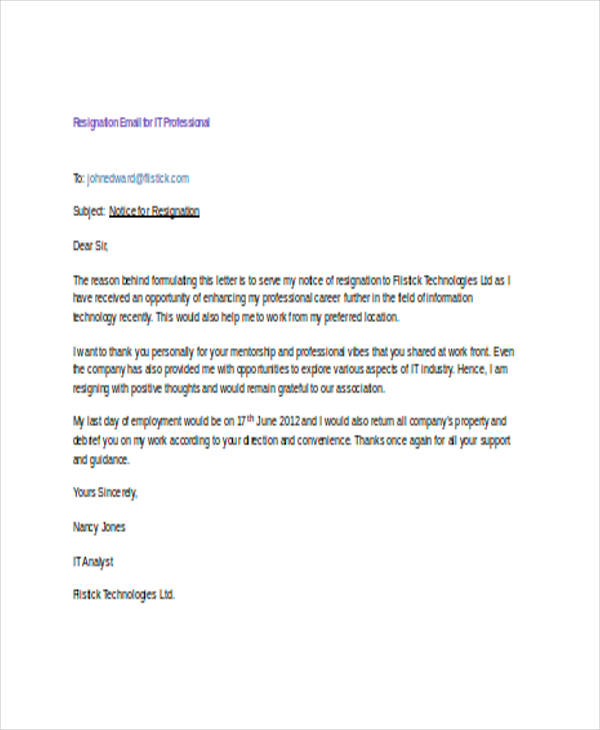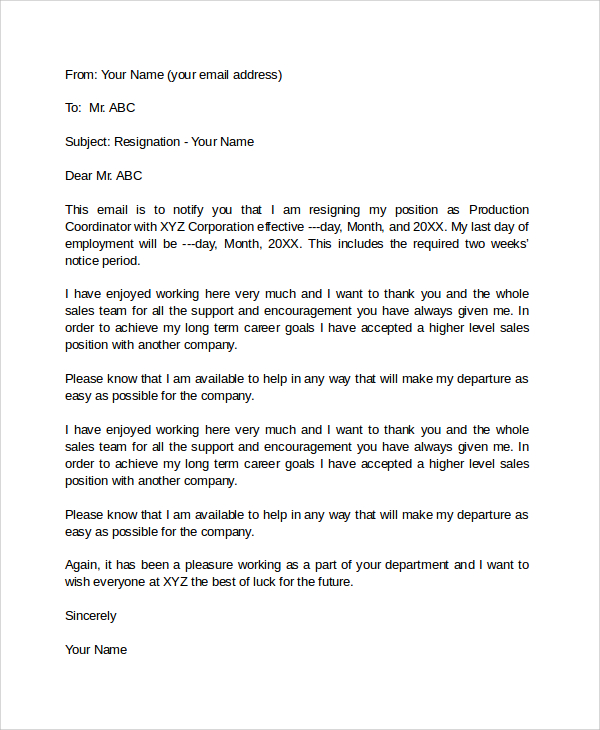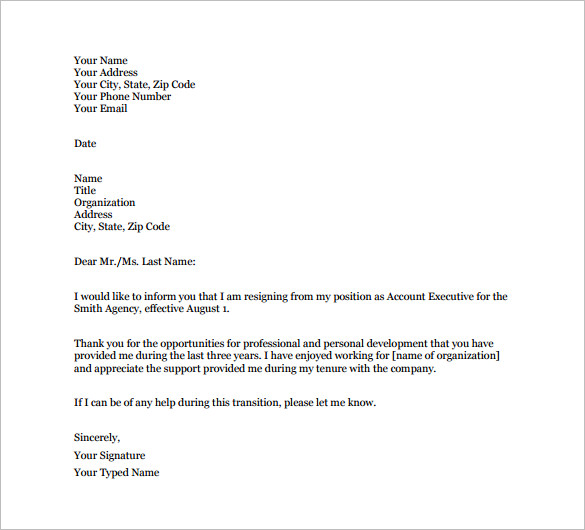The Art of Leaving a Lasting Impression
When it comes to leaving a job, making a good impression is crucial, even in the final stages of your employment. The title of your resignation email sets the tone for your departure and can leave a lasting impression on your former employer and colleagues. A well-crafted title can convey respect, professionalism, and gratitude, which are essential for maintaining a positive relationship after you’ve left the company. In fact, a study by Glassdoor found that 58% of employees consider their relationship with their former employer to be important or very important. Therefore, it’s essential to get the title of your resignation email right. If you’re wondering what to title a resignation email, you’re not alone. Many employees struggle to come up with a title that effectively communicates their intention to leave the company. A good title should be clear, concise, and professional, and should include your name, position, and date of last day of work. By following these guidelines, you can create a title that leaves a lasting impression and sets the tone for a smooth transition.
Choosing the Right Words: A Guide to Resignation Email Titles
When it comes to titling a resignation email, the right words can make all the difference. A well-crafted title can convey professionalism, respect, and gratitude, while a poorly written one can leave a negative impression. To ensure you get it right, consider the following tips and examples of effective resignation email titles. First, use a formal tone to convey professionalism and respect. Avoid using slang, jargon, or overly casual language, as it can come across as unprofessional. Instead, opt for a formal and polished tone that reflects your professionalism. Next, avoid using negative language or phrases that may come across as confrontational or aggressive. Phrases like “I’m out of here” or “I’m done with this company” can leave a negative impression and burn bridges. Instead, focus on using positive language that conveys your appreciation for the opportunity to work with the company. Finally, keep your title concise and to the point. Avoid using long, rambling titles that may confuse or overwhelm the reader. Instead, opt for a clear and concise title that effectively communicates your intention to leave the company. Some examples of effective resignation email titles include “Notification of Departure from [Company Name]”, “Resignation of [Your Name] from [Position]”, or “Letter of Leaving: [Your Name]”. By using a formal tone, avoiding negative language, and keeping it concise, you can create a title that effectively communicates your intention to leave the company and leaves a positive impression.
How to Write a Clear and Concise Title
When it comes to writing a clear and concise title for your resignation email, there are several key elements to include. First and foremost, your title should clearly state your intention to leave the company. This can be done by using a phrase such as “Notification of Departure” or “Resignation from [Position]”. It’s also essential to include your name, position, and date of last day of work in the title. This information provides context and helps the reader understand the purpose of the email. For example, a clear and concise title might read: “Notification
Examples of Effective Resignation Email Titles
When it comes to titling a resignation email, it’s essential to use a clear and concise title that effectively communicates your intention to leave the company. Here are some examples of effective resignation email titles that you can use as a guide: “Notification of My Departure from [Company Name]”, “Res
What to Avoid in a Resignation Email Title
When it comes to titling a resignation email, there are several common mistakes to avoid. One of the most important things to avoid is using negative language. Phrases like “I’m fed up with this company” or “I’m leaving because of the poor management” can come across as unprofessional and may burn bridges. Instead, focus on using neutral language that simply states your intention to leave the company. Another mistake to avoid is being too casual. Using slang or overly casual language can make your resignation email seem unprofessional and may not be taken seriously. For example, using a title like “Peace out, [Company Name]!” is not a good idea. It’s also important to avoid including unnecessary information in your title. For example, you don’t need to include the reason for your
Best Practices for Formatting Your Resignation Email Title
When it comes to formatting your resignation email title, there are several best practices to keep in mind. First, use a standard font such as Arial, Calibri or Times New Roman. Avoid using fonts that are too ornate or difficult to read, as they may not be taken seriously. Next, avoid using all caps or over-italicizing in your title. This can come across as shouting or overly dramatic, and may not be taken seriously. Instead, use a standard font size and avoid using any formatting that may be perceived as unprofessional. It’s also important to keep your title short and sweet. Aim for a title that is no more than 5-7 words in length. This will help ensure that your title is concise and to the point, and that it effectively communicates your intention to leave the company. Finally, avoid using special characters or symbols in your title. These can be distracting and may not be taken seriously. Instead, stick to standard letters and numbers, and avoid using any formatting that may be perceived as unprofessional. By following these best practices, you can create a well-formatted resignation email title that effectively communicates your intention to leave the company and leaves a positive impression.
Showing Appreciation and Gratitude in Your Title
When crafting the perfect farewell, it’s essential to show appreciation and gratitude in your resignation email title. This not only leaves a positive impression but also demonstrates respect for the company and colleagues. A well-crafted title can express thanks for the opportunities provided, acknowledge the experience gained, and appreciate the support received during your tenure.
To incorporate appreciation and gratitude in your title, consider the following suggestions:
Use phrases such as “Grateful for the Opportunity to Serve as [Position]” or “Thankful for My Time at [Company Name].” These phrases convey a sense of appreciation and gratitude, setting a positive tone for your resignation email.
Include a brief acknowledgement of the company’s support, such as “Appreciation for the Experience Gained at [Company Name]” or “Thank You for the Opportunity to Grow as a [Position].” This shows that you value the experience and skills acquired during your time at the company.
Keep in mind that the key is to be sincere and genuine in your expression of gratitude. Avoid using generic phrases or insincere language, as this can come across as unprofessional.
When deciding what to title a resignation email, remember that a well-crafted title can make a lasting impression. By incorporating appreciation and gratitude, you can leave a positive legacy and maintain a professional relationship with your former employer.
Final Tips for a Smooth Transition
As you prepare to leave your job, it’s essential to ensure a smooth transition for your colleagues and the company. A well-planned transition can help maintain a positive relationship with your former employer and leave a lasting impression. Here are some final tips to consider:
Offer to assist with the recruitment process for your replacement. This can include providing input on the job description, participating in interviews, or helping to train the new hire. By doing so, you can help ensure that the transition is seamless and that the company finds a suitable replacement.
Provide training and support to your colleagues and team members. This can include documenting your tasks and responsibilities, creating a knowledge base, or providing one-on-one training sessions. By sharing your knowledge and expertise, you can help ensure that the team continues to function smoothly after your departure.
Maintain a positive relationship with your former employer. This can include staying in touch with colleagues, attending company events, or providing feedback and recommendations. By maintaining a positive relationship, you can help ensure that you leave on good terms and that the company is willing to provide a positive reference in the future.
Consider offering to be available for questions or concerns after your departure. This can include providing a contact email or phone number, or being available for a set period after your last day. By being available to answer questions, you can help ensure that the transition is smooth and that any issues are addressed promptly.
When deciding what to title a resignation email, remember that a well-crafted title is just the first step in ensuring a smooth transition. By following these final tips, you can help ensure that your departure is professional, respectful, and leaves a lasting impression.


